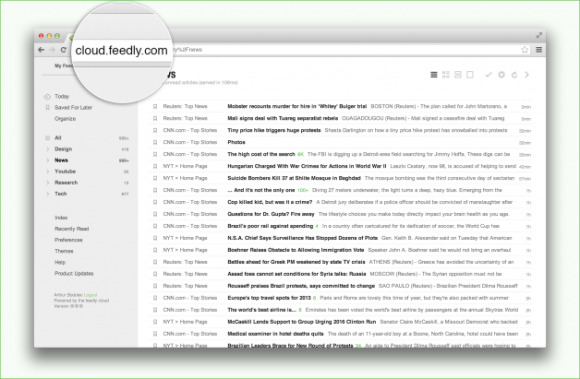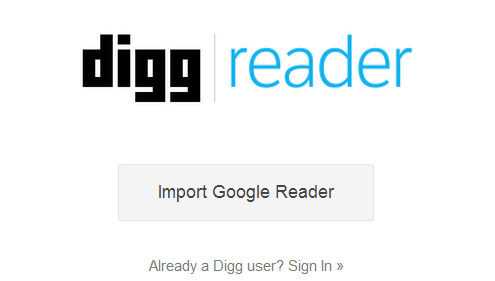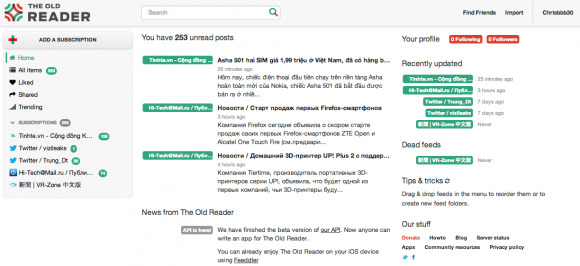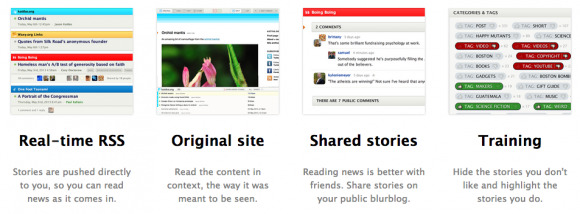Google Reader is dead: 5 replacements for your consideration
This week Google Reader says its final goodbye, sending itself off in a wave of suggestions for replacements from the news media. It would appear at first that groups like Feedly and Digg have taken early leads in the war of potential, but what else is out there to work with? And what bits and pieces of Google Reader do you think you'll need to move forward with an alternative?
Feedly
If you're looking to make the switch FAST, you might want to consider Feedly. We've found it to be a snap to move from Google Reader (not everyone at SlashGear has, mind you, but those that have agree), with just a couple button taps to import Google Reader feeds. Better get on that bit fast if you want to keep your whole collection of Google Reader feeds, of course, since once they're gone, they're gone.

At the time this article is published, Feedly still works with single page updates – aka no infinite scroll – and as new news stories appear, the page you're on can switch. So it can be confusing.
A bit positive with Feedly – as it is with some other entrants on this list – is the fact that they've got a relatively large staff working on the service. Dedicated, that is – so you can expect improvements in the near future. Feedly recently went "cloud" as well, meaning you can work with it in-browser (as it very well should be).
Digg Reader
The team at Digg is in a long-standing startup mode, meaning they're willing to go big with big changes whenever there's a need. It wasn't too long ago that Digg was saved from death by a group of folks that are aiming to made the word "mean something again".

Digg Reader will, if you're opening it for the first time, show you a one-button-import of your Google Reader feeds as well. Digg Reader is, at the moment, exceedingly similar to Feedly – they've got infinite scrolling, on the other hand, and at least as much fire to take command of the massive amount of users coming over from Google Reader this month.
The Old Reader
The first "you may never have even heard of this one" entry on our list is The Old Reader. This service is a rather super-simplified iteration of what Feedly and Digg Reader offer, here with a limited amount of options but a sort of "no nonsense" approach. You'll end up loving The Old Reader if you like what you see today and don't expect too many changes in the near future.

The Old Reader staff have also offered up a beta version of an Old Reader API. This bit of code will allow developers to create apps for The Old Reader en masse in the near future. One prime example of this code being utilized is in the iOS app Feeddler.
NewsBlur
With NewsBlur you're getting closer to a full-fledged top-level app environment, meaning you're heading toward visuals as being the primary breadwinner rather than the skeletal text-based approach offered by most Google Reader alternatives. Here though you've got Android and iOS apps, free usage up to 64 sites, and "Training". With "Training" you're able to hide stories you don't like, highlight those you do, and gain a much more curated experience in the end.

Of course with Training, you're not getting as "pure" an experience as you'll be needing if you're a publisher of news – or a blogger, of course – as there's always the chance that an important story will be knocked out of your way accidentally because it works with keywords you've kicked.
And yes, you did see the word "free" up there because this service works with a Premium model as well – paying $24 USD a year will get you unlimited everything, public, protected, and private sharing abilities, and a mysterious "up to 10x as often" number of site updates – this essentially means you'll be getting support from the developers behind NewsBlur a bit more regularly.
NetNewsWire 4
Still in beta and working for Apple computers exclusively (for now), this app is easily one of the most swift and aesthetically pleasing of the simple readers. Of course you're working with a desktop application instead of a web-based interface, so you're stuck on one machine, (only a problem if you're prone to switching machines on the regular).

NetNewsWire previously relied on Google Reader for its news synchronization – soon (hopefully really, really soon) the development team at Black Pixel will be bringing up their own sync system. Once they do, you'll want to have downloaded your RSS collection from Google Reader in advance. Consider doing so one way or another!
